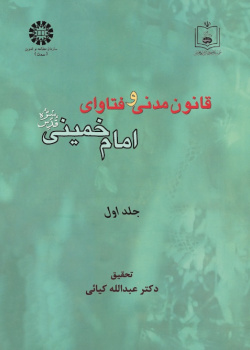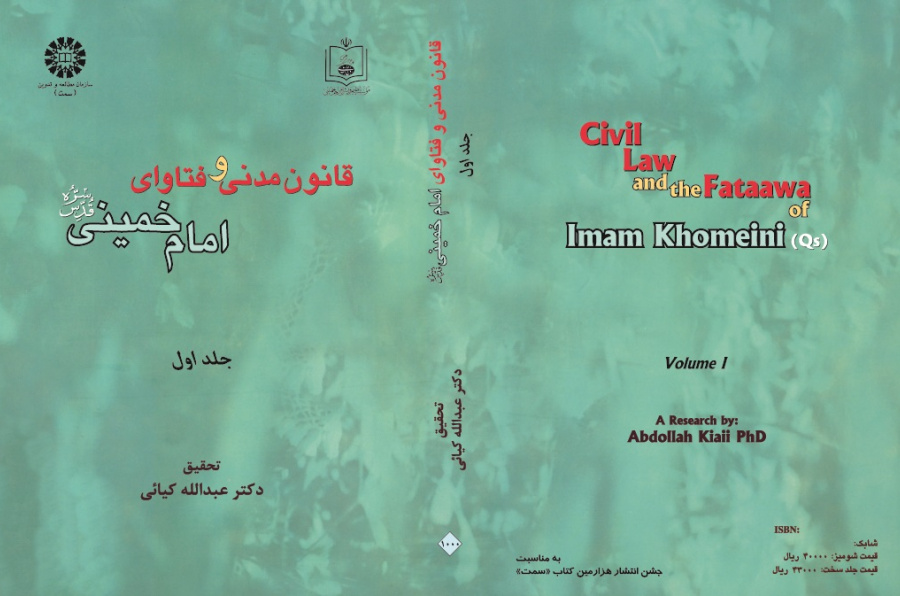

Civil Law and the Fataawa of Imam Khomeini (Qs) (Vol.I)
The author in this book has made an attempt to collect fatwas and establish a relation between civil law and the fatwas of Imam Khomeini. This book not only makes easy access to the fatwas of Imam and their comparison with civil laws, but also provides an effortless way of reference to other juridical sources and to a
researcher this means saving time. The basis of research in this book has been Imam Khomeini’s fatwas in his books Tahrir Al- Vasilah and Istifta’at.
The book, in addition to an introductory part titled “Distribution, Influence and Execution of Law in General”, is in two parts and eleven chapters. The first part of the book is about possessions. In this part, when discussing different kinds of possessions, points are made about various laws in relation to possessors. In the second part titled “On Possessing Property” first the issue of “Reviving the Lands of a Deceased and the Collection of Mobah (a religious term meaning permissible) Belongings” is put forward. As related topics, issues of revival of the lands of a deceased and mobah lands; collecting mobah objects; mines; found objects, lost and in danger animals; treasure and hunting are discussed. Then the problem of “Contracts, Deals, and Obligations” is addressed. In this part some general notions about contracts and responsibilities; non-contractual obligations; and certain multiple contracts are studied.
This book which is compiled in two volumes and three chapters can be a source of reference for judges and lawyers as well as a guide in finding and inducing of injunctions. It is also useful in conducting research and writing on law.
This book can be a source of reference for judges and lawyers as well as a guide in finding and inducing of injunctions. It is also useful in conducting research and writing on law.





